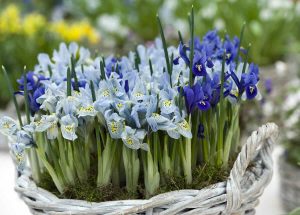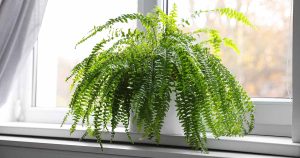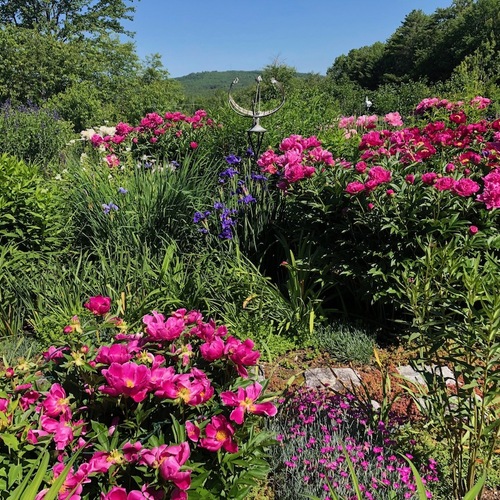
Today we’re visiting with Harriet Robinson:
“It has been a few years since I submitted anything to GPOD. My pool garden (a filled in swimming pool) has been featured before. It is one of several areas I garden in Maine. Not in these photos are the vegetable beds, Siberian and bearded iris collections, a long border I call the fence garden, a small shade garden, a small roadside garden, the front foundation plantings and some shrub sections. All this keeps me outside for hours every day. It is the backyard with the pool garden that gets most of my attention and this is what I am featuring in these photos taken throughout the 2023 season. It was a very challenging summer with endless rain, weeds that wouldn’t stop germinating and a good share of insect pests liking the wet conditions and lush growth.”
The garden begins with snowmelt in mid April. The early bulbs (Crocus, Zones 3 – 8, and Iris reticulata, Zones 4 – 8, in this area) are more enjoyable close up but here’s an overview.

Sudden warmth ended the early bulbs quickly this year but pushed the daffodils (Narcissus hybrids, Zones 3 – 9) along in early May. Then it turned cooler and they lasted a long time. Daffodils mark my first peak bloom.
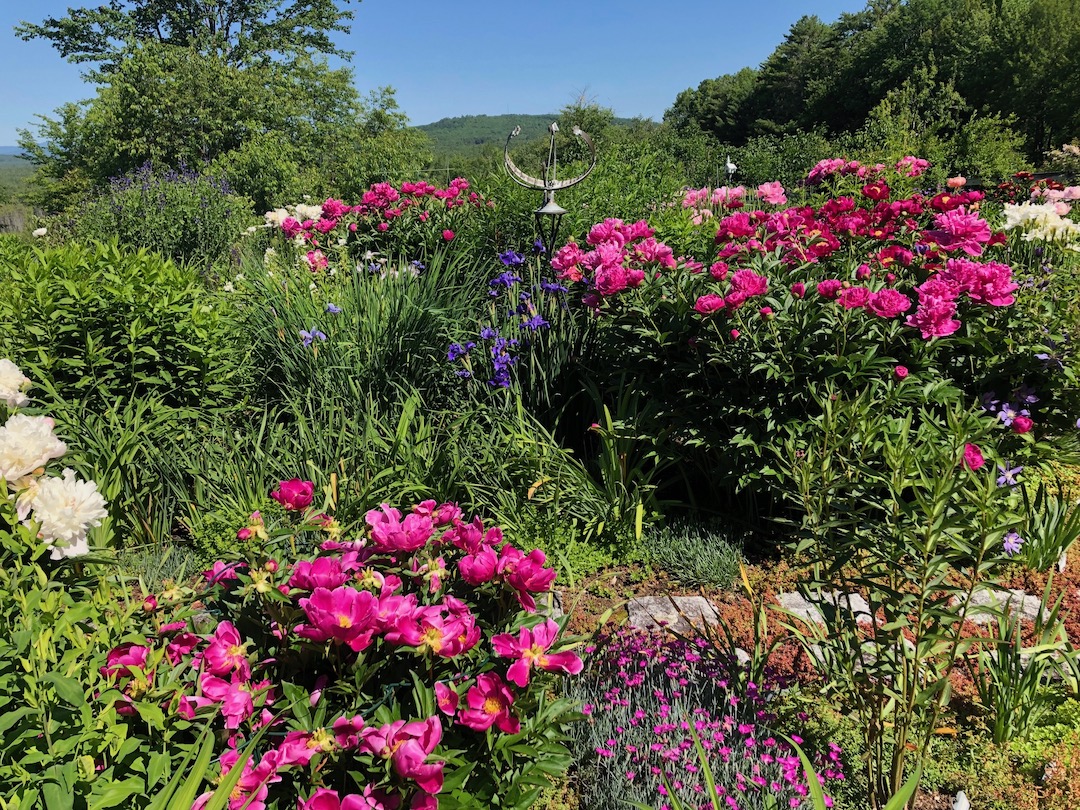
The second peak bloom features peonies (Paeonia hybrids, Zones 3 – 8) and Siberian irises (Iris siberica hybrids, Zones 3 – 8) the third week of June.
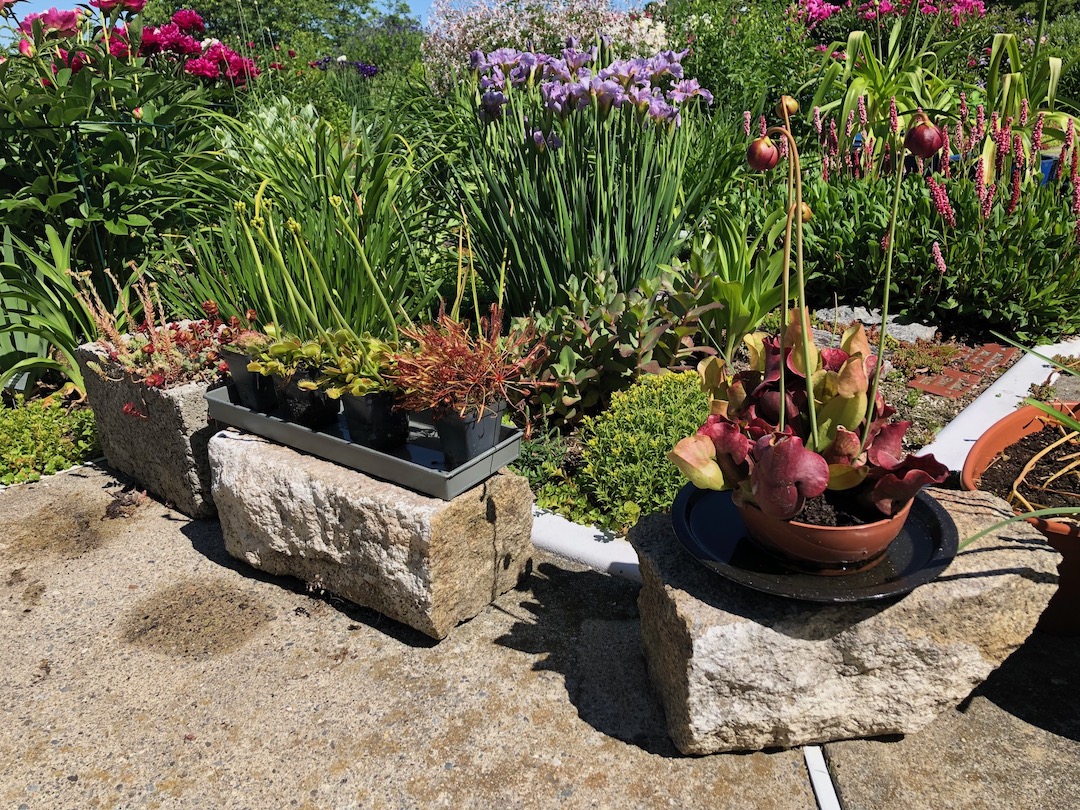
Carnivorous plants in June. They grow in pots set in trays filled with rainwater.
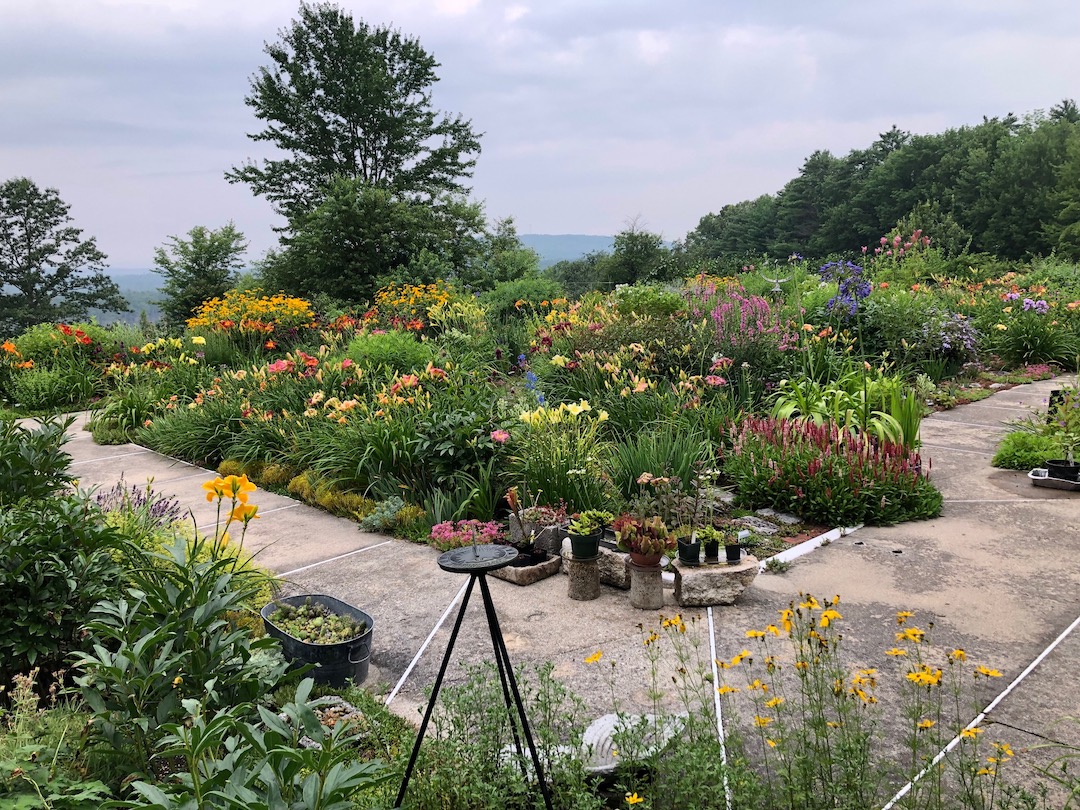
A month later the daylily (Hemerocallis hybrids, Zones 4 – 9) peak changes the color palette from romantic pink, blues and whites to hot bright colors. Clumps of bright yellow Heliopsis (Zones 3 – 9) are long lasting companions to the daylilies.
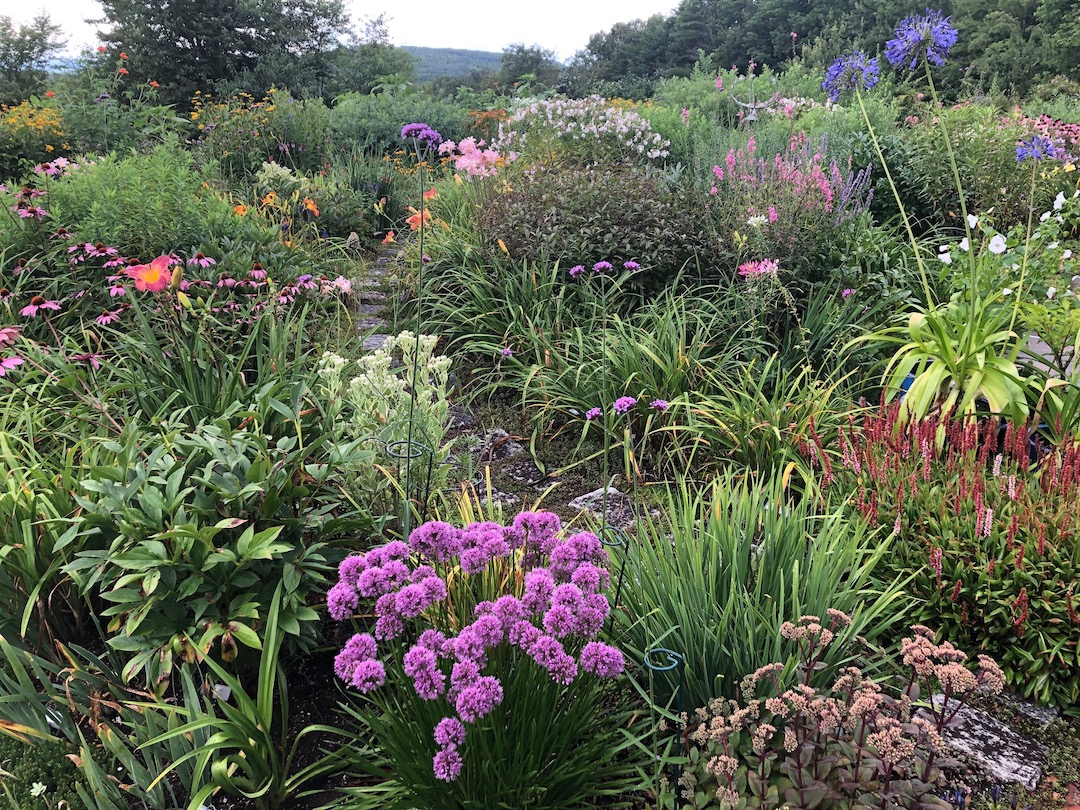
Things slow down a month later in August but Allium ‘Millenium’ (Zones 4 – 8), Verbena bonariensis (Zones 7 – 10, or as annual) and a few later daylilies keep the show going. I grow the common echinacea (Echinacea purpurea, Zones 3 – 8) for a long period of bloom. Hylotelephium (formerly Sedum, Zones 3 – 9) like ‘Matrona’ and ‘Frosty Morn’ bloom in August followed by ‘Autumn Joy’ in September. This is one name change I agree with since the upright ones behave quite differently from the sedum groundcovers and edging plants I enjoy throughout the garden.
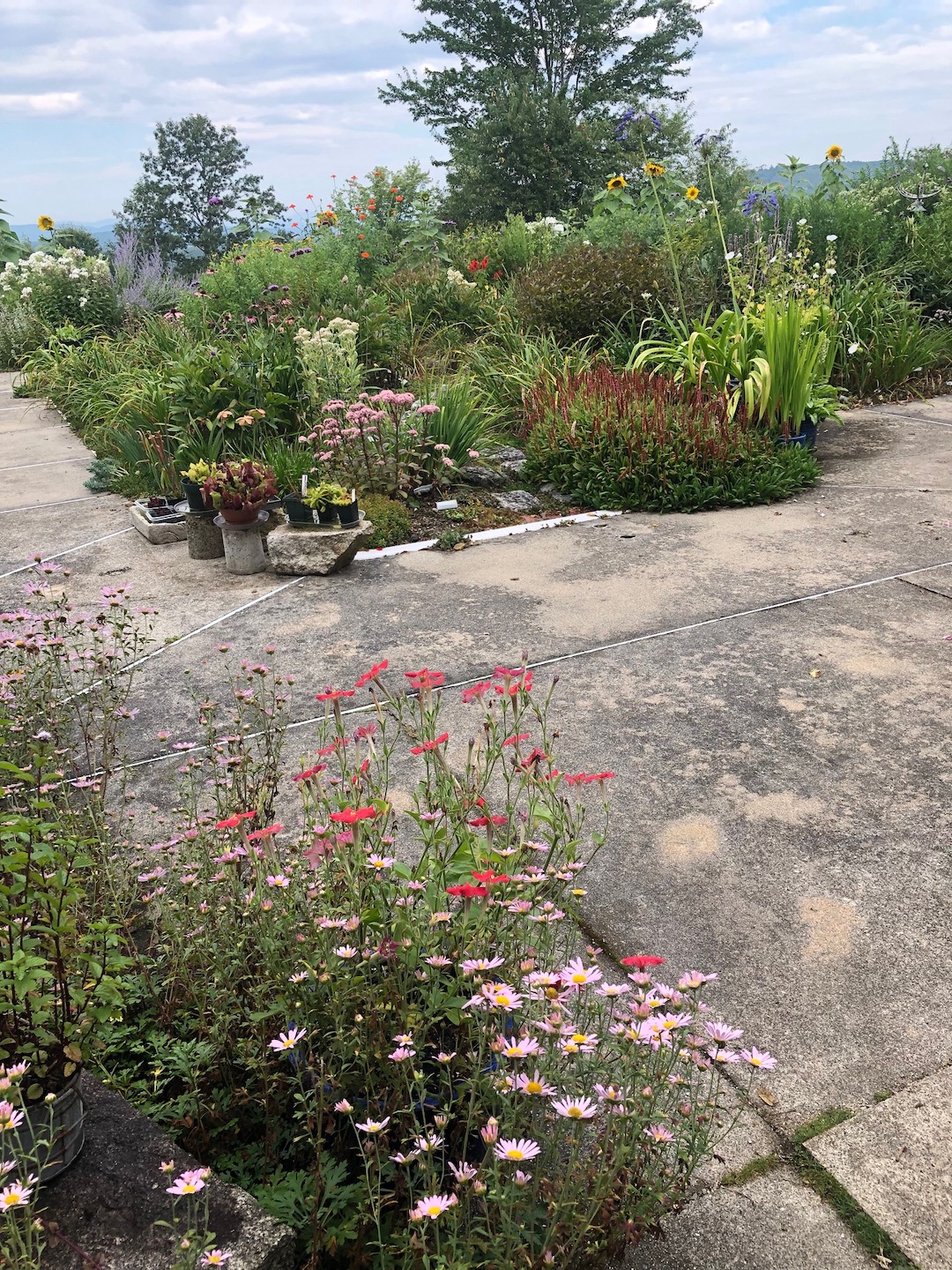
Long-blooming flowers from late August keep blooming in September. The star for September are the sections of a hardy chrysanthemum, likely ‘Clara Curtis’ (Chrysanthemum ‘Clara Curtis’, Zones 4 – 9). One of those plantings shows here contrasting nicely with a pot of Petunia exerta (annual) that bloomed all summer long.

October is Aster month. The first, hot pink Alma Potske (Symphyotrichum novae–angliae ‘Alma Potschke’, Zones 3 – 9) starts things off in September and the last, Raydon’s Favorite (Symphyotrichum oblongifolium ‘Raydon’s Favorite’, Zones 3 – 8) was still blooming in November. You can also see ‘Mrs. T.S. Wright’ and ‘Bluebird’ in thise photo. Colchicum (Zones 5 – 9) also make an appearance in the fall, next to the path. It is worth putting up with its foliage in the spring, just as the lycoris (Lycoris squamigera, Zones 5 – 9) foliage (one of the clumps is in the August picture) also grows and ripens to make a fleeting but anticipated appearance as a naked lady.

Late October brings another hardy chrysanthemum, ‘Apricot’. Calamint (Calamintha nepeta Zone 5 – 7) surrounded by the mums isn’t the showiest but the pollinators certainly found it and enjoyed it. We had a very late frost this year evident from the orange annual emilia (Emilia coccinea) decorating a bearded iris bed across from ‘Raydon’s Choice’. By November the garden had some blooms but the overall garden was no longer photogenic as I prepared for winter snow.
Have a garden you’d like to share?
Have photos to share? We’d love to see your garden, a particular collection of plants you love, or a wonderful garden you had the chance to visit!
To submit, send 5-10 photos to [email protected] along with some information about the plants in the pictures and where you took the photos. We’d love to hear where you are located, how long you’ve been gardening, successes you are proud of, failures you learned from, hopes for the future, favorite plants, or funny stories from your garden.
Have a mobile phone? Tag your photos on Facebook, Instagram or Twitter with #FineGardening!
Do you receive the GPOD by email yet? Sign up here.
